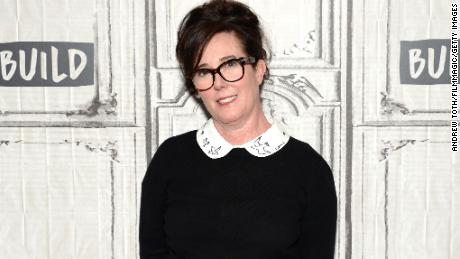It’s a nice idea that we can pull ourselves up by our bootstraps and kick depression to the curb. But like most bootstrap narratives, it’s simply not true.
Iconic fashion designer Kate Spade died by suicide earlier today. As I read the news, all I could think was one thing: There’s no such thing as outrunning depression.
It’s easy to fall into that trap, believing that if only you were more successful, more wealthy, more capable, your depression would vanish. Shifting the burden of your mental health onto your ability to produce.
But that’s not how it works. Certainly, there’s an economic system at play that relies on our belief that working harder will make us whole. But capitalism doesn’t give a shit about any of us.
We’re cogs in the wheel of a system that relies on us working ourselves to the bone to achieve the American Dream. And even though it’s rigged and most of us will never achieve it, that doesn’t stop us from trying.
Spade’s death is tragic. But it’s also a stark reminder that there’s no amount of success or money that’s enough to vanquish depression.
It’s easy to say that, of course. There’s nothing happy or satisfying about shut-off notices and struggling to pay the rent or buy food. All too often, we’re stressed out and anxious about our financial circumstances and that stress contributes negatively to our mental health.
That’s why it’s so tempting to tell ourselves that removing that stress will cure our depression. But there are circumstances and there are brain chemicals, and no amount of improved circumstances will change the latter.
Recently, I switched from a work-at-home gig to working in an office. I’ve always known that I do better with structure and less time at home. I need the social interaction an office provides, and I feel happier when I talk to someone other than the barista at my local coffee shop on a daily basis. Working at home was never my top choice, but it met my needs at the time.
For years while working at home, I wondered what was wrong with me and why I couldn’t seem to shake my lingering depression and anxiety. Within a week at my new company, much of that fog began to lift. It didn’t hurt that my new job brought more stable finances too.
But that wasn’t the end of the story. I find myself struggling less, but I’m still the same person. My brain still works the same way. I still need to go to therapy and take antidepressants. My improved circumstances didn’t cure me, they simply lifted me slightly out of the muck.
I’ve found myself all over the economic spectrum throughout my life, so I should know better than to believe I’d feel better if only I had more money or more career success. And yet when finances were tight and my career felt like it was stagnating, it was easy to forget what I knew and fall into the same old trap of blaming myself for struggling.
It was easy to look at other people and believe that if I had what they have, I’d be happier. That their lives were a cure for what ailed me. That if only I tried harder, I could conquer depression.
It’s a nice idea that we can pull ourselves up by our bootstraps and kick depression to the curb. But like most bootstrap narratives, it’s simply not true. No matter how much I earn or achieve, I’ll always still have to actively manage my mental health. Through time, that management has become less prominent in my life, but I’ve been blessed by that. Not everyone is that lucky.
I don’t know what Spade was struggling with. I don’t know what drove her to die. But I know a life ended today after only 55 years, and it wasn’t because money and success are a panacea.
Jody Allard is a former techie-turned-freelance-writer living in Seattle. She can be reached through her website, on Twitter or via her Facebook page.
Other Links:

